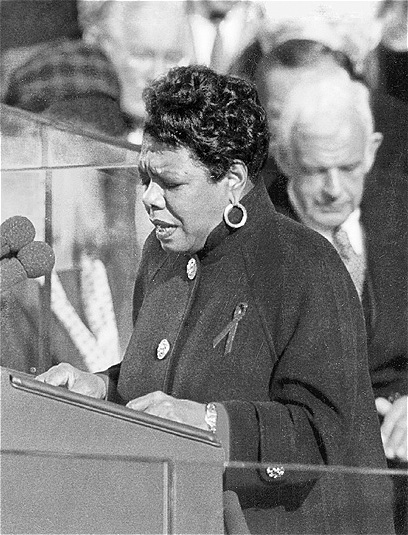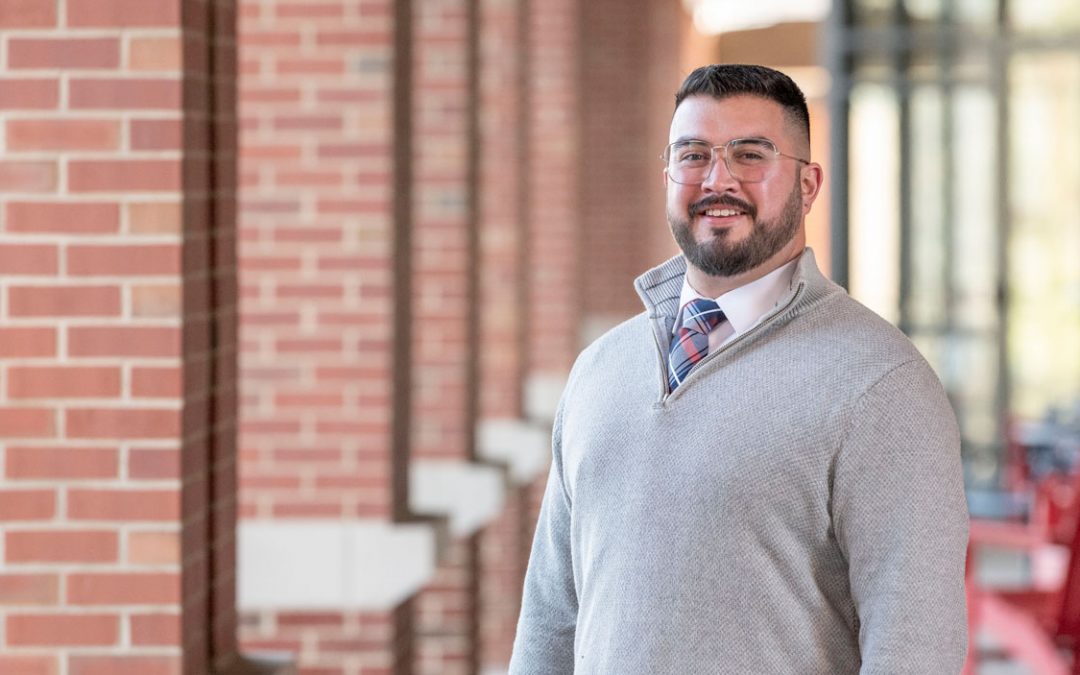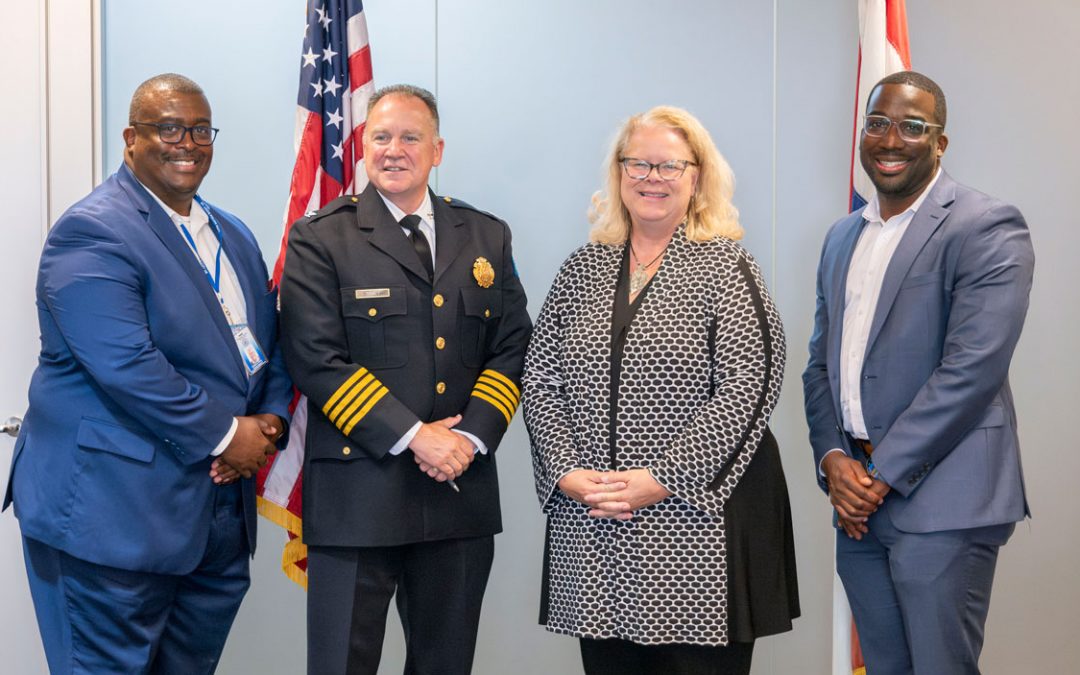Priscilla Dowden-White remembers the impact Maya Angelou’s “The Heart of a Woman” had on her when she first read it. Dowden-White was 19, single and pregnant.

Maya Angelou recites her poem “On the Pulse of Morning” at President Bill Clinton’s inauguration in 1993. (Photo courtesy of the White House)
“(That book), in some ways, saved my life,” she says.
Angelou, a well-known and highly regarded poet, author and civil rights activist, died last week. The St. Louis native was 86.
The news didn’t surprise Dowden-White, now an associate professor of history at the University of Missouri–St. Louis and an expert on African American history in St. Louis, because she knew Angelou was ill.
“But I feel as thought I have lost a close family member,” she says. “Indeed, the world has lost a close family member.”
Many at UMSL mourned the loss of Maya Angelou, who spoke on campus multiple times. Barbara Harbach, a Curators’ Professor of Music at UMSL, composed “Freeing the Caged Bird,” a musical response in four parts to one of Angelou’s best-known books.
“I was so profoundly moved by Maya Angelou’s book ‘I Know Why the Caged Bird Sings’ that when the Equinox Chamber Players asked me to write a musical composition for their woodwind quintet, I knew that Maya was going to be a part of it,” Harbach says. “We had just moved here, and I was overwhelmed that St. Louis was the birthplace of so many strong and outstanding women, including especially Maya.”
She called Angelou a trailblazer and role model for men and women alike.
“Her motto, ‘I rise,’ should be an inspiration to us all,” Harbach says.
Jason Vasser, a student pursuing an MFA in Creative Writing, took to The Loop to gather with other poets at Angelou’s star on the St. Louis Walk of Fame. He also deeply related to “I Know Why the Caged Bird Sings.”
“In our community, many of us feel caged,” Vasser told the Riverfront Times. “When she wrote that novel, for me the message is that she understands, because she’s been caged as well. I think Maya Angelou was really about using poetry as way to express yourself, to allow yourself to be free, even though your mind and your body may not be.”
Niyi Coker, the E. Desmond Lee Professor of African/African American Studies at UMSL, says Angelou gave speech to the voiceless, and her work affirmed the pride of African heritage and elevation of womanhood.
“A big tree has fallen in the forest,” Coker says. “Now we will always remember that it once stood there.”
“We have lost a wonderful poet and noble person,” adds Drucilla Wall, associate teaching professor of English and poet in residence at UMSL. “Not only is her body of work monumental, but also her influence on younger poets and generosity of spirit to everyone have touched thousands of people and made our world a better place.”
Visit the KTVI website to view reporter and UMSL alumna Kim Hudson’s interview with with Priscilla Dowden-White about Angelou. Visit the KSDK and Riverfront Times websites to hear or read Jason Vasser discussing Angelou.














